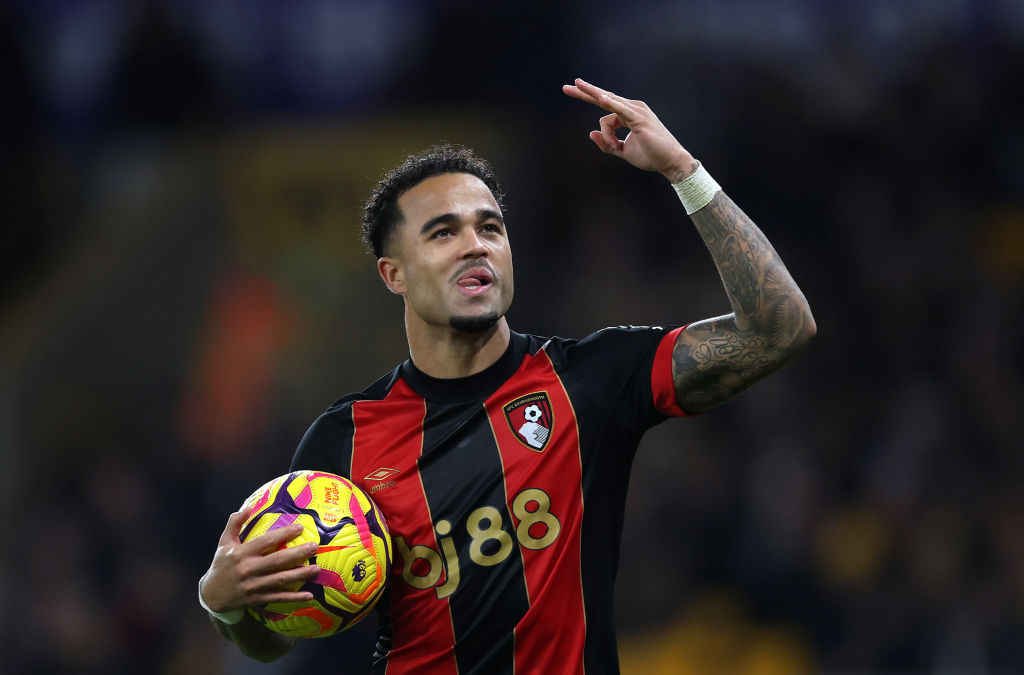Timid and indecisive Mignolet is playing for his Liverpool future – contract or otherwise
Reports suggest the Belgian is set to sign a new deal at Anfield, but that doesn't necessarily mean he's set to stay for the long-term. Alex Hess evaluates his two-and-a-half years on Merseyside...
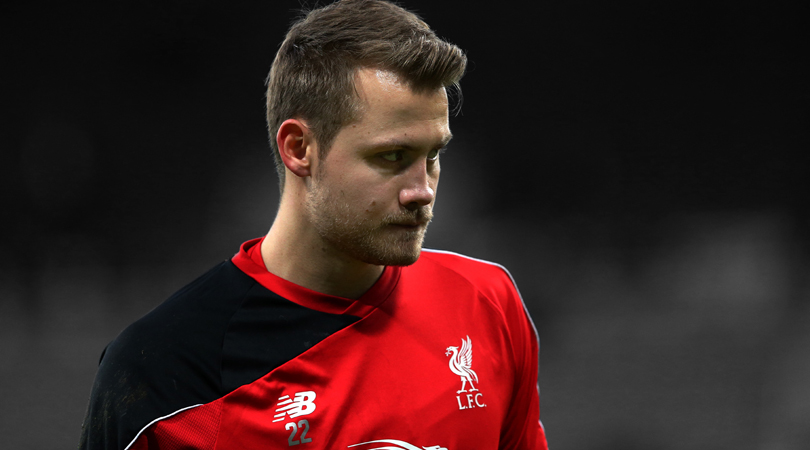
The sound of Anfield’s Kop venting its anguish at the man guarding the goal below is fast becoming a familiar one for Simon Mignolet.
The Belgian’s two-and-a-half years on Merseyside have not been catastrophic by any means – and there have been a number of high-quality moments along the way – but nor is it unfair to suggest that the overriding tone of his Liverpool career thus far has been one of niggling uncertainty; of self-perpetuating self-doubt.
This has been most obviously manifested in the actions of Mignolet himself – since joining Liverpool he has committed more errors leading directly to goals than any of his Premier League peers, the latest coming during the aerial bombardment of West Brom on Sunday – but it has transmitted itself to other parties, too. Behind him, Liverpool’s back four have steadily adopted a default setting of frenzied confusion, while the Anfield crowd has also learnt to gulp in Pavlovian unison whenever the ball sails into Mignolet’s area.
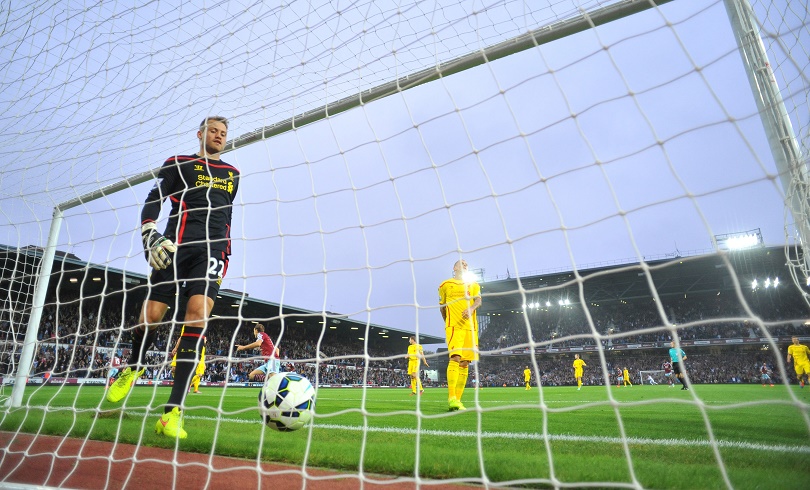
Some of this unease is offset by his undeniable excellence at the single most fundamental part of the goalkeeper’s skill set: keeping out shots. But judged in a broader context, in which the position’s elite practitioners not only possess an aura of steely fearlessness but must also be as technically and tactically fine-tuned as their outfield colleagues, the argument that Mignolet can survive as a top-level goalkeeper on his reflexes alone appears increasingly flawed. Too often while at Liverpool, the 27-year-old has resembled Fredo Corleone fumbling for his pistol by the roadside: a man ill-suited to a role that requires clout, coordination and command, helpless to prevent disaster striking.
Deal on the table
Mignolet is as much a symptom of Liverpool’s longstanding defensive woes than the catch-all cause that his more unforgiving critics might have you believe
All of which lends a vaguely surprising air to the news that Mignolet is on the verge of signing a new contract with the club. "I’ve worked with a lot of goalkeepers over the last few years and Simon Mignolet is one of the smartest I’ve ever had," Jurgen Klopp said this month. "He is completely open and young enough to develop and improve."
No one has ever doubted Mignolet's intellect; it's the latter two qualities that Anfield will be most keen to see evidence of should he indeed form part of the new manager's long-term plans.
Get FourFourTwo Newsletter
The best features, fun and footballing quizzes, straight to your inbox every week.
It should be said that Mignolet has never worked under easy conditions on Merseyside, and indeed is as much a symptom of Liverpool’s long-standing defensive woes than the catch-all cause that his more unforgiving critics might have you believe. Parachuted into a backline that had just been shorn of its two dominant leader figures in Jamie Carragher and Pepe Reina in the summer of 2013, Mignolet has spent his time playing behind a rotating cast of haphazard defenders whose defining attitude has been of deferred responsibility.
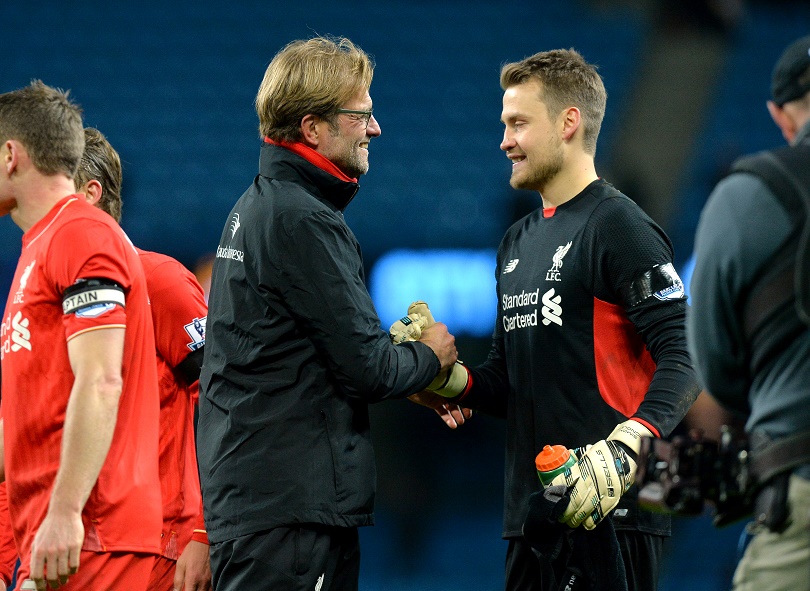
Mignolet’s own problem, though, is that it’s the goalkeeper’s authority that traditionally conceals such deficiencies. Instead, his lack of it has compounded them.
The anti-Reina
Liverpool’s current number one is well capable of the kind of against-the-odds save that entire results can pivot on, and yet this is undermined by a hesitancy in claiming crosses, a lack of organisational initiative and a penchant for unforced errors with the ball at his feet
A brief rebirth during the second half of last term promised much, but in hindsight that spell looks more and more like a false dawn. The campaign ended with Mignolet conceding nine goals in two games; this season has harboured further glimpses of the timidity and indecision that has punctuated his Liverpool career.
The difference in demeanour between the Belgian and his predecessor illustrates how much the position depends on perception. Reina was an unshakably vocal presence, carried himself like a streetfighter and was a fine, unflustered passer. The ideal modern keeper – at least on paper.
In practice, things were less straightforward. The longer Reina’s Liverpool career went on, the rarer the truly world-class saves became. The Spaniard would rarely appear directly culpable for a goal, but he never showed himself to be a bona fide point-earner, either.
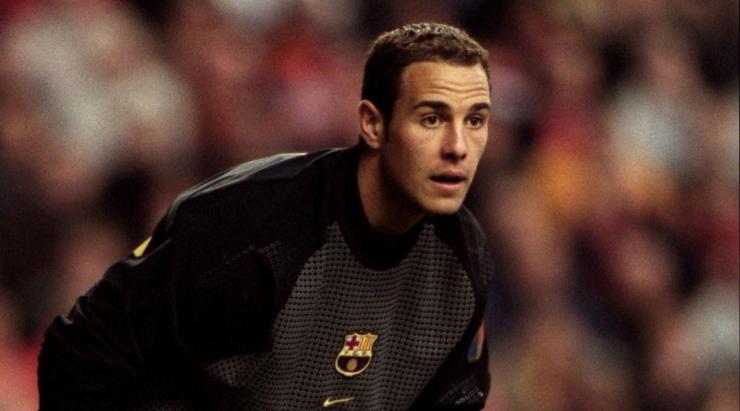
With Mignolet, almost the exact reverse applies. Liverpool’s current No.1 is well capable of the kind of against-the-odds save that entire results can pivot on, and yet this is undermined by a hesitancy in claiming crosses, a lack of organisational initiative and a penchant for unforced errors with the ball at his feet (call it Turf Moor syndrome). He is 6ft 4in in height – two inches taller than Reina – but far shorter in presence.
It’s a trade-off with no clear winner – there’s nothing to say Mignolet’s net effect on the side isn’t more positive than Reina’s was, or would have been – but one of these skill sets transmits assurance and the other does the opposite.
Rodgers' man
Mignolet can be seen as a symbol of the management model of fractious groupthink along which Liverpool has been functioning the past few years
Another oddity about the former Sunderland custodian’s story is the fact that, when the club were given the choice between these two models of goalkeeper back in 2012, it was the Mignolet model that then-manager Brendan Rodgers plumped for. Odd, because this was the same Rodgers who had been hired based on his dogmatic adherence to a patient possession game – “death by football” – and for whom the pinpoint passing of Michel Vorm had been so vital at Swansea.
Replacing Reina with Mignolet was part of a grander process of compromise on Rodgers’ part, one which saw him shift toward the ultra-frenetic approach that so nearly landed the Premier League title. But how much of that was the fruition of a long-term plan and how much was simply bravura improvisation from Rodgers is a matter of debate. Given the many whispers about the club’s discordant internal politics, epitomised by the notorious transfer committee, it’s not unreasonable to assume that Rodgers’ philosophical compromise was more imposed than planned.
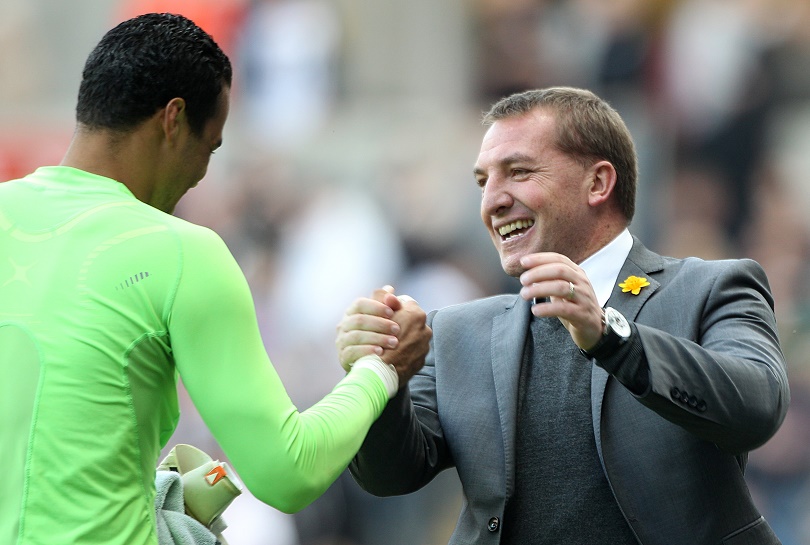
In a way, then, Mignolet can be seen as a symbol of the management model of fractious groupthink along which Liverpool has been functioning the past few years. It’s a model capable of bringing improbable highs – as Mignolet’s more stunning saves and Liverpool’s 2013 title challenge would attest – but also risks the incongruousness that can undermine the construction of a properly harmonised team (as manifest in Mignolet’s non-relationship with his back four, or in Liverpool’s unintelligible, second-rate campaign last time out).
Playing for his future?
If somebody says it was your fault, it is not true, it is my fault. I want a keeper who comes out and tries for everything
Quite how closely the faceless forces which so rankled Rodgers will align themselves with Klopp’s methods is as yet unclear. What appears less ambiguous is that the German has put his faith in Mignolet for the time being, even going as far as to engage in the logical contortionism required to absolve him of blame for Saturday’s opener (“I said to Simon: ‘If somebody says it was your fault, it is not true, it is my fault. I want a keeper who comes out and tries for everything’”).

Klopp has made his name as a motivator, a man whose teams exceed the sum of their parts due to the courage and resilience he inspires. Liverpool's defence is too frequently the inverse: a passive collection of individuals who together amount to far less than they should.
Perhaps Klopp has identified an improved and rehabilitated Mignolet as the key to reversing the process. But the German can be ruthless too and, contract or no contract, his patience will not last forever. Most likely, the next six months will decide Mignolet’s Liverpool future.
